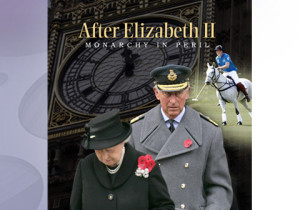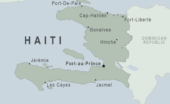Re Ian Bremmer 'Could third-party candidates upend the 2024 US election?' 3 April The current political movement in the USA…
Wednesday Night #1446
Written by Diana Thebaud Nicholson // November 18, 2009 // Reports, Wednesday Nights // Comments Off on Wednesday Night #1446
See also WednesdayNight.com for photos, videos and more
12 November At Issue “Royals versus Republic”
The evening was enlivened by the presence of not only Carman Miller, and other ‘usual suspects’, but also a surprise visit from Martin Barnes. Stimulated by many clips from John Curtin’s film, the debate lived up to expectations. It was lively – even heated – at some points. Schools of thought ranged from monarchist to republican to indifferent, and were largely focused on the extremely negative feelings provoked by the Heir Apparent and his consort. However, inevitably, most agreed that the morass of constitutional debate over what form a post-monarchical Canada might take weighed heavily against an impulsive move to change the system.
Scribe’s Prologue
Is it a matter of revolution or evolution? Or perhaps, the status quo is just fine. In the pre-World War II period, there was no question about Canada’s relationship with the monarchy. Each morning, school children sang God Save the King as they saluted our flag, that is, the Union Jack and sang songs from the Empire songster. They were told how fortunate they were to live in the Empire where, if they were to have the good fortune of visiting the motherland, they would pass through customs via a special line reserved for citizens of the Empire, while the unwashed, including Americans, underwent the indignity of waiting in a parallel line. It was special. Shillings and pence were accepted currency everywhere and pound notes, for those wealthy enough to possess them, were easily converted to five-dollar bills. Canada was a bare seventy years old, the Governor General was invariably a Brit, and there was a great comfort in the knowledge that we were part of that great, just, powerful entity over which the sun never set. We were proud that the Royal family acknowledged and protected us.
World War II was pivotal in the transformation of Canada. With close to ten percent of its population in its armed forces, Canada came of age. Post-war immigration changed its demographic profile but devotion to King and country remained undiminished. Unlike the royal families of other kingdoms, the British Royal family remained at home to serve in the war, gaining the respect and affection of citizens throughout the Commonwealth, a respect enjoyed to this day. The Empire was transformed into the Commonwealth as the perceived image of the monarchy changed. The accession to the throne of Elizabeth II following the death of King George VI in early 1952 kept the monarchy alive and healthy.
As the world becomes more homogeneous (or perhaps, less heterogeneous), in the perhaps naïve belief that monarchies are more elitist than democracies, the number of monarchies in the world has diminished to eighteen. The widespread conviction that any American can become President naïvely denies or ignores the presence of the ruling class in the United States. France’s transformation from monarchy to republic was difficult, clearly demonstrating the need for a Head of State to ensure that the head of government cannot subvert the constitution to his own benefit.
The Royals
In the final analysis, the social role of the Royal family, although a source of pride to many, is not nearly as important as the role of protecting the integrity of the government. The pomp and circumstance represents a quasi-religious, secular ritual that brings inner satisfaction to the citizens. Elizabeth II has been greatly respected throughout the Commonwealth, but there is a growing belief that the Monarchy is an anachronism. While a philosophical basis for this sentiment exists, the situation has been exacerbated by the general dislike of Prince Charles and his wife. The growing number of voices calling for the end of the Monarchy following Elizabeth II, are partly a response to an apparent misunderstanding of the royal role on the part of Prince Charles. In his attempt to play the roles of both opinionated actor and arbiter in the greater world, he appears to be tarnishing his own image as well as that of the monarchy.
If Canada were to decide to divest itself of the monarchy, how would it go about it? The recent dispute between Prime Minister Harper and Governor General Michaëlle Jean over her mistaken self-description as Head of State rather than as the Queen’s representative in Canada reflects a common review of the role of the Governor General and confusion over what her actual duties are. In effect , in addition to social and ceremonial duties, her only defined responsibility is to ensure that Canada always has a prime minister and a government in place that has the confidence of Parliament. In the event that Canada wished to divest itself of the monarchy, it would, according to some experts, be very simple. At the end of the reign of Elizabeth II, the Canadian parliament would simply not ratify her successor as King. The difficult part would be the necessary federal-provincial negotiations over a new constitution fraught with its recurring nightmares.
Those who see the monarchy as an anachronism that cannot continue to exist may very well be right, but would be greatly deceived to find that a far less constrained elite would be directing the affairs of the nation in its own best interest. The anachronistic rituals of respect, the bowing and curtsying might disappear but the elite class filling the void would undoubtedly not have been born and bred to be dedicated to a life of service to the citizens.
Brief notes on the market
Speculative fever again. The current stock market surge is not warranted by the state of the economy, but the market will go higher, especially because we are approaching year-end. In the United States, the economy is in poor shape and America’s problem is China’s problem and vice versa. In China, there are many empty factories and much unemployment and it requires the support that a weak currency gives it. There is a divergence between fundamentals and market behavior because the market is oversold. This is a cyclical phenomenon recurring every forty years. A technical analysis of the market would reveal a downturn but the reality of a rising market is the result of the availability of cash looking for a home. The forecast is for the market to continue to rise until the end of the year when the obligatory annual purchasing frenzy to full portfolios will be followed by pension funds being invested in January and February. The moment of truth can be expected in March.
CBC came in for considerable criticism over its recent innovations. Changes to The National are universally disliked – the new set, the graphics, the awkward stance of Peter Mansbridge and his guests …. The recent elimination of Fred Langan’s Nightly Business News – with no warning – was bemoaned. The replacement is inadequate to the point of embarrassment.
Gold
Gold is going up and one Wednesday Nighter believes that someday the world will go back to the gold standard at which point the price of gold will rise to $3,000. Others are dubious, pointing out that if currencies are backed by gold, the growth of the economy will be constrained by the amount of gold that can be mined.
There is no rational explanation for the gold buying frenzy. Unlike other commodities, gold is not consumed. All the gold that has ever been taken out of the ground is still in existence. Except for buying and selling, it is of no value, only price, which rises in the anticipation that it will continue to rise, by those who acquire gold as a hedge to replace the faltering U.S. dollar.
T H E I N V I T A T I O N
In the company of Professors Richard Schultz and Carman Miller, along with John Curtin, we look forward to an informative and entertaining discussion of Canada and the Monarchy.
Charles and Camilla have come and gone. We do not know if they had a private screening of John Curtin‘s film (which, incidentally, we hear had the highest viewer ratings of any CBC documentary to date) before they left – or perhaps on their homeward flight – but their visit provoked more than the usual discussion of the monarchy’s future and more especially, the future of the monarchy in the Canadian context.
Of relevance? The Gazette states that John Curtin’s great-uncle delivered Prince Charles.
Prodded by Tony Deutsch and others, Wednesday Night will address some of the questions raised by monarchists and anti-monarchists alike. How could Canada ‘divorce’ the British monarchy; and even if that is feasible – what then? What profound changes would have to be introduced in Canada’s system of government? Who would be the Head of State?
What would replace the office of the Governor General – and those of the Lieutenant Governors. Are we to endow Quebec with a President? Who will elect our eleven presidents? If it is a popular election, the Head of State might take the view that s/he has a mandate of some sorts, particularly if s/he did better electorally than the party forming the Government. (The Fifth Republic in France was clearly born under circumstances where de Gaulle was the most popular politician in France.) If the presidents are elected, and possibly dismissed, by the Legislature, the president is at the mercy of the parliamentary majority, just like the Prime Minister. That leads to other complications.
Is it worth opening the constitutional can of worms, or are we better off having Canada (mostly) united against the monarchy rather than disunited in favor of replacing it?
Any or all of this requires constitutional changes, which in Canada are fraught with difficulties. One Wednesday Nighter suggests that the dangers of that process may outweigh any annoyance from having an unpopular Monarch who lives in England. The easiest solution is “the Queen is dead, long live the King” and put a moose where the Monarch used to be on the twenty-dollar bill.
Finally, can we arrive at a common vision of what sort of a person should live in Government House, regardless of the job title. For that matter, -we should perhaps also consider what sort of a person should live at 24 Sussex – but that’s for another night.
Stephen Harper’s foray into high-level statesmanship in Asia – or more appropriately tradesmanship … He has been given more than requisite wriggle room on the Global Agreement on Climate Change and won’t have to attend the Copenhagen Conference while Jim Prentice insists that Canada’s on board as long as the tar sands flourish. So, having managed to make it to the APEC photo-ops on time, the PM is off to India and hoping for assorted trade deals, with the principal focus on a civil nuclear agreement that could breathe real life into Canada’s nuclear industry (John Ibbitson’s piece in the Globe& Mail is worth reading), not to mention, ahem, appeal to Indo-Canadian voters at home.
Aside from last week’s rare agreement between an economist and a technical analyst that food stocks are a buy, we don’t hear much from our government about the World Food Summit, so can only hope that someone in Ottawa is paying attention. We cannot even find out who (from Canada) is at the Summit.
Afghanistan is more than ever in the news, as President Obama wrestles with the four options he has been presented, decides he doesn’t like any of them and is criticized for not making a decision. Frank Rich makes an interesting case for the connection between the shootings at Ford Hood and the decision the President must make.
The 18th is the deadline for the EU to designate the first permanent president of the European Council and foreign affairs chief. Now that Tony Blair is out of the running, it’s anyone’s guess who will be named. Timothy Garton Ash offers some good analysis, but no sure bets.
Much closer to home, we continue to be amused/amazed by the shock and awe with which assorted public figures have greeted the findings that Lo! There is corruption in the construction industry in Montreal/Quebec. Of course Mme Harel is losing no time in demanding that the Charest government hold an inquiry. The Gazette supports the idea, if not its sponsor, noting that Municipal Affairs Minister Laurent Lessard this week announced plans for new legislation that amount to a mini-trusteeship of the province’s municipalities.
And we applaud the findings of the BAPE that the Turcot Interchange plans need changes
Finally, we cannot let pass Sunday’s Op-Ed piece on the mafia in which the author, Professor Filippo Sabetti, makes this startling connection/allegation: “Recent events in Montreal are not surprising, though it’s puzzling to note that the media have not extended their inquiries to, say, procurement policies of various levels of government in Quebec. What is surprising is how much the mafia is recklessly invoked only because some people alleged to be involved in corrupt practices carry an Italian last name. Why do reporters and columnists not speak or make fun of Duplessis-like systems or Westmount-type system of governing? Westmount was once a very corrupt municipality.” Never fear, our vigilant Mayor Trent is pursuing the besmirchment of Westmount’s good name. More will surely follow.
Your reading/viewing list
Video clip: McGill History professor Carman Miller and Mutsumi Takahashi discuss the increasing irrelevance many Canadians feel for the royal family. [We did NOT construct that sentence!]
Andrew Coyne Defending the Royals
In 1963, the historian W. L. Morton published a splendid one-volume history of Canada: The Kingdom of Canada.
… there is a list of all the kings and queens “sovereign over Canada.” There are 18 of them, nine French and nine English, from Francis I, who ruled at the time of Jacques Cartier’s first landing in 1534, all the way to Elizabeth II. Prince Charles will one day be the 19th King of Canada, and Prince William the 20th.
So you see, we are an ancient kingdom, with a history of continuous monarchical rule stretching back nearly five centuries.
Michael Valpy: The monarchy: Offshore, but built-in
The Canadian monarchy doesn’t simply mean the Queen is head of state with Charles waiting in the wings. It means that this is the way the country is governed; it’s the nuts and bolts of how the country works. Second, changing that status would be political and legal agony because the Crown has metastasized throughout the Constitution.
Terminating Canada’s history as a monarchy is one thing; the media, academy and public service have been working on that for years. Rubbing the monarchy out of the Constitution is something else.
Lawrence Martin: On the question of monarchy, Australia tried to sever the knot a decade ago but failed. Had the bid succeeded, there would have been momentum in this country.
The dramatic change would require the unanimous consent of Parliament and the provinces. Canadian legislators know from experience the problems that this can cause. Moreover, since the monarchy is viewed as powerless, the attitude is: Why bother? Of course, it isn’t powerless, as seen last December when the Governor-General, without a word of public explanation, single-handedly decided the fate of the Conservative government.
Should Prince Charles ever be our king?
Other Commonwealth nations are already engaged in debate about the monarchy’s role.
Earlier this year, Australian Prime Minister Kevin Rudd told the BBC that his country will one day alter its constitutional landscape. Ten years ago, 55% of Australians voted ‘no’ to a republic in a referendum, but Mr. Rudd said another vote is inevitable. Meanwhile, in New Zealand, politicians will soon debate a private member’s bill to replace the monarch as head of state. And in Jamaica, the government has launched a constitutional reform process that would, among other things, establish a republic.
Prince Charles on the throne could end monarchy in Canada: new documentary
Weary Of Windsor
(National Post) John Curtin; New doc charts the monarchy’s uncertain future
“It’s critical, but I don’t think that, at any point, you feel like we’re ganging up on Charles, that we’re being mean to him,” said Curtin, whose most recent films include Fly Me to the Moon, Fateful Attraction, and To Hell with Manners. “The talking heads were more staunch monarchists, probably by 60 to 40%. I just wanted to map out all of Charles’ weaknesses to show that he’s the weakest link in succession, and if it doesn’t get by him, then it’s gone. I tried to muster the evidence to show that the 1,000-year-old dynasty is in peril right now.”
Ottawa Notebook:
Talk about a royal bum’s rush. The very day that Prince Charles and Camilla exit Canada after their 11-day visit, the CBC is broadcasting a rather provocative, and dare we say nasty, take on Charles, the man, the prince, the father and the future king.
The documentary, After Elizabeth II: Monarchy in Peril, by producer John Curtin, is well-done, entertaining, lovely to watch and no doubt will stir the pot debate about the relevancy of the monarchy. Mr. Curtin interviews several columnists in Britain, one of whom, The Independent’s Johann Hari, takes shots galore at the future King. He calls Charles “deeply weird” and muses that Charles has power and place simply because he “passed through [Queen Elizabeth’s] womb.”




